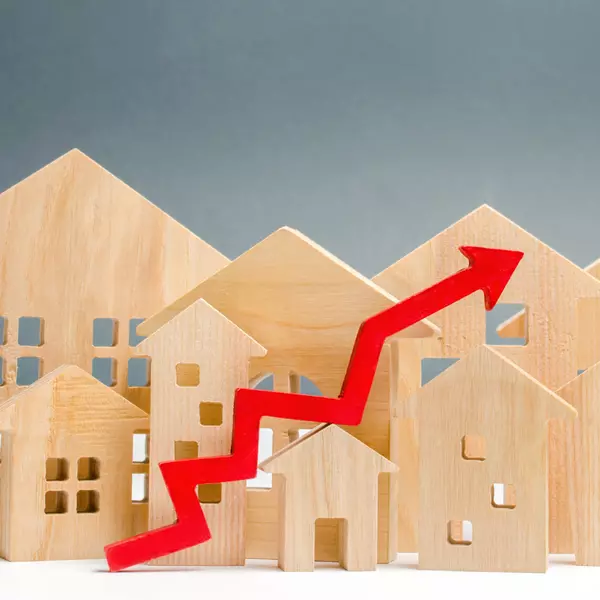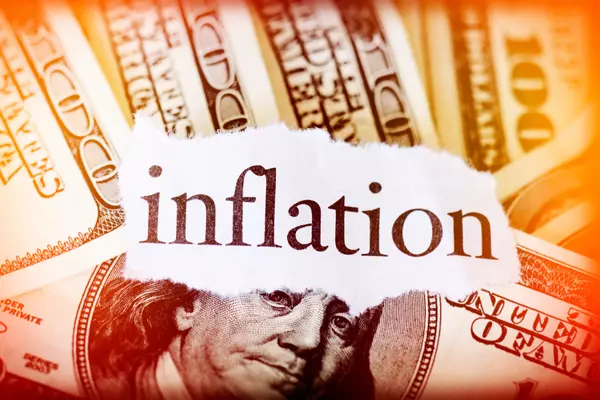

Understanding the Nuances of Home Price Trends
haga clic aquí para leer en espanol Embarking on a new home purchase might leave you pondering: "What exactly is the trajectory of home prices currently?" Although various news outlets might suggest a variety of narratives, the overarching national trend is not depicting a decline in home prices. Rather, we're observing a shift towards a normalization in the growth rate of home prices. Let’s delve into the details to comprehend this pattern better. The housing market traditionally experiences cyclic fluctuations throughout a year, a phenomenon referred to as 'seasonality'. Notably, spring emerges as the zenith of the homebuying season, characterized by vibrant market activity. Although summer maintains this momentum to a certain extent, a gradual diminution is observed as the chillier months loom. Correspondingly, home prices mirror this seasonal trajectory, appreciating most significantly when demand spikes. Here's a tangible illustration: a graph illustrating data from Case-Shiller maps out the typical monthly home price movements from 1973 to 2022. This, crucially, isn’t adjusted to vividly display the inherent seasonality. As evident from the data, the inaugural months of the year witness a growth in home prices, albeit not as pronounced as during the spring and summer periods. The cause? A comparatively dormant market in January and February, attributed to a reduced inclination to relocate during the colder months. Progressing into the lively spring homebuying peak, a surge in activity—and consequently, home prices—is discernible. This vivacity tapers off as autumn and winter encroach, slowing price growth, yet typically maintaining an appreciation trajectory. Navigating through several aberrant 'unicorn' years, the recent elevation in mortgage rates has signaled a reversion to familiar seasonal norms. To quote Selma Hepp, Chief Economist at CoreLogic: "High mortgage rates have quelled further price surges, recalibrating monthly increases to standard seasonal averages. Thus, while home prices continue to augment, they align with historical seasonal expectations." Decoding the Importance Anticipate an increased media spotlight on home prices in the forthcoming months, potentially sprinkled with the following terminologies: Appreciation: A rise in prices. Deceleration of Appreciation: A continuing price rise, albeit at a reduced, or more tempered pace. Depreciation: A reduction in prices. Amidst potentially perplexing jargon and potentially ambiguous headlines, remain unperturbed. The previously witnessed meteoric rise in home prices was inevitably unsustainable and a moderation in growth—an appreciation deceleration—was anticipated, not a depreciation. Keep in mind: a deceleration in home price growth as the year progresses is par for the course. Crucially, this doesn’t equate to a drop in home prices, but a moderation in their ascent. Despite headlines potentially sowing seeds of apprehension and bewilderment regarding home price trajectories, the reality is straightforward. We are witnessing a reversion to conventional seasonality in home price appreciation. Should queries regarding price developments in your specific locality arise, initiating a dialogue with a real estate expert might prove enlightening.
Read More

The Impact of Inflation on the Real Estate Market
haga clic aquí para leer en espanol Inflation is the rate at which prices for goods and services increase over time. It can have a significant impact on the real estate market, both positive and negative. Positive impacts of inflation on the real estate market: Rising property values: When inflation is high, the value of real estate tends to increase as well. This is because the purchasing power of money decreases, so people are willing to pay more for real estate in order to maintain their standard of living. Increased rental income: Inflation can also lead to increased rental income for landlords. This is because landlords can raise rents to keep pace with the rising cost of living. Protection against inflation: Real estate can be a good way to protect against inflation. This is because the value of real estate tends to increase over time, even when inflation is high. Negative impacts of inflation on the real estate market: Higher mortgage rates: When inflation is high, central banks typically raise interest rates in an attempt to cool the economy. This can lead to higher mortgage rates, which can make it more expensive for people to buy homes. Working with a trusted mortgage broker is critical in navigating this as there are always many options to consider. Reduced demand for real estate: Higher mortgage rates can also reduce demand for real estate. This is because people are less likely to buy homes when it is more expensive to borrow money. Slower housing construction: Inflation can also lead to slower housing construction. This is because rising costs of materials and labor make it more expensive to build new homes. Why You May Still Want To Sell Your House After All in 2023 The real estate market has been hot in recent years, with prices rising sharply. However, there are a number of factors that could make it a good time to sell your house in 2023, even if the market is starting to cool. You need to move: If you need to move for a job, family reasons, or other personal reasons, you may not have a choice but to sell your house. Even if the market is not as hot as it was last year, you should still be able to get a good price for your home. You need the equity: If you have built up a lot of equity in your home, you may be able to use it to fund your next move, pay off debt, or invest in other assets. You're ready to downsize: If you're empty nesters or downsizing for other reasons, you may want to sell your house and move into a smaller, less expensive home. This could save you money on your mortgage, taxes, and maintenance costs. You're looking for a profit: If you bought your home a few years ago, you may be able to sell it for a profit. This could be a good way to get some extra cash or use the equity to buy a nicer home. Ultimately, the decision of whether or not to sell your house in 2023 is a personal one. You should weigh the pros and cons carefully and make the decision that is best for you and your family. Here are some additional tips for selling your house in 2023: Get your home ready to sell. This includes staging your home, decluttering, and making repairs. Price your home competitively. You don't want to price your home too high and scare away potential buyers. Hire a good real estate agent. A good agent will know how to market your home and get you the best possible price. Be patient. It may take some time to sell your home, especially if the market is not as hot as it was last year. If you're thinking about selling your house in 2023, be sure to contact a Let’s Grow Real Estate agent to help you gather information and sort through the market facts so you can make the decision that is right for you.
Read More

How to Protect Yourself from Real Estate Scams
Haga clic aquí para leer en español Real estate is a major investment, and scammers know it. They prey on people's hopes and dreams of buying or selling a home, using a variety of tactics to steal money and property. Here are some tips on how to protect yourself from real estate scams: Only work with licensed professionals. Real estate agents, lenders, and other professionals in the real estate industry are required to be licensed by the state. You can verify their licenses by checking with your state's licensing board. Be wary of unsolicited offers. If someone contacts you out of the blue with a great deal on a home, be skeptical. Scammers often use this tactic to lure people in. Do your research. Before you buy or sell a home, be sure to research the property and the people you're dealing with. Check public records to see if there are any liens or other legal problems with the property. And be sure to verify the identity of anyone you're dealing with. Don't be pressured. Scammers typically try to pressure people into making quick decisions. If someone is pressuring you to buy or sell a home, or to send money, walk away. Use secure payment methods. Only use secure payment methods, such as a cashier's check or wire transfer from a reputable bank. Avoid paying with cash, gift cards, or cryptocurrency. Get everything in writing. Before you make any financial commitments, get everything in writing. This includes contracts, offers, and receipts. Here are some specific real estate scams to be aware of: Fake listings: Scammers create fake listings for homes that are not actually for sale. They then contact potential buyers and ask for money to hold the property or to start the escrow process. Deed fraud: Scammers forge deeds to transfer ownership of a property to themselves. They then sell the property to unsuspecting buyers. Wire fraud: Scammers send fake wire transfer instructions to buyers or sellers. When the victim sends money, the scammers steal it. Home improvement scams: Scammers offer to perform home improvement services at a discounted price. However, they often do shoddy work or never complete the job. Foreclosure rescue scams: Scammers promise to help homeowners avoid foreclosure. However, they often charge high fees and provide no real assistance. If you think you may have been a victim of a real estate scam, there are steps you can take: Report the scam to the authorities. You can report the scam to your local police department, the Federal Trade Commission (FTC), and your state's real estate licensing board. Contact your bank or credit card company. If you have lost money to a scam, contact your bank or credit card company to report the fraud. They may be able to reverse the charges or reimburse you for your losses. File a complaint with the Better Business Bureau. The Better Business Bureau can help you file a complaint against the scammer and warn others about the scam. By following these tips, you can protect yourself from real estate scams and avoid becoming a victim. Here are a few more tips to help you stay safe from real estate scams: Use strong passwords and enable two-factor authentication on all of your online accounts. This will make it more difficult for scammers to access your personal information. Be careful about what information you share online. Scammers can use your personal information to create fake profiles and target you with scams. Be suspicious of unsolicited emails and text messages. Scammers often use these methods to spread malware or to trick people into giving away their personal information. If you're not sure about something, ask a trusted friend or family member for advice. They can help you assess the situation and avoid being scammed. Real estate scams can be costly and time-consuming to recover from. Be aware of the different types of scams and take steps to protect yourself, you can avoid becoming a victim.
Read More
Categories
Recent Posts











